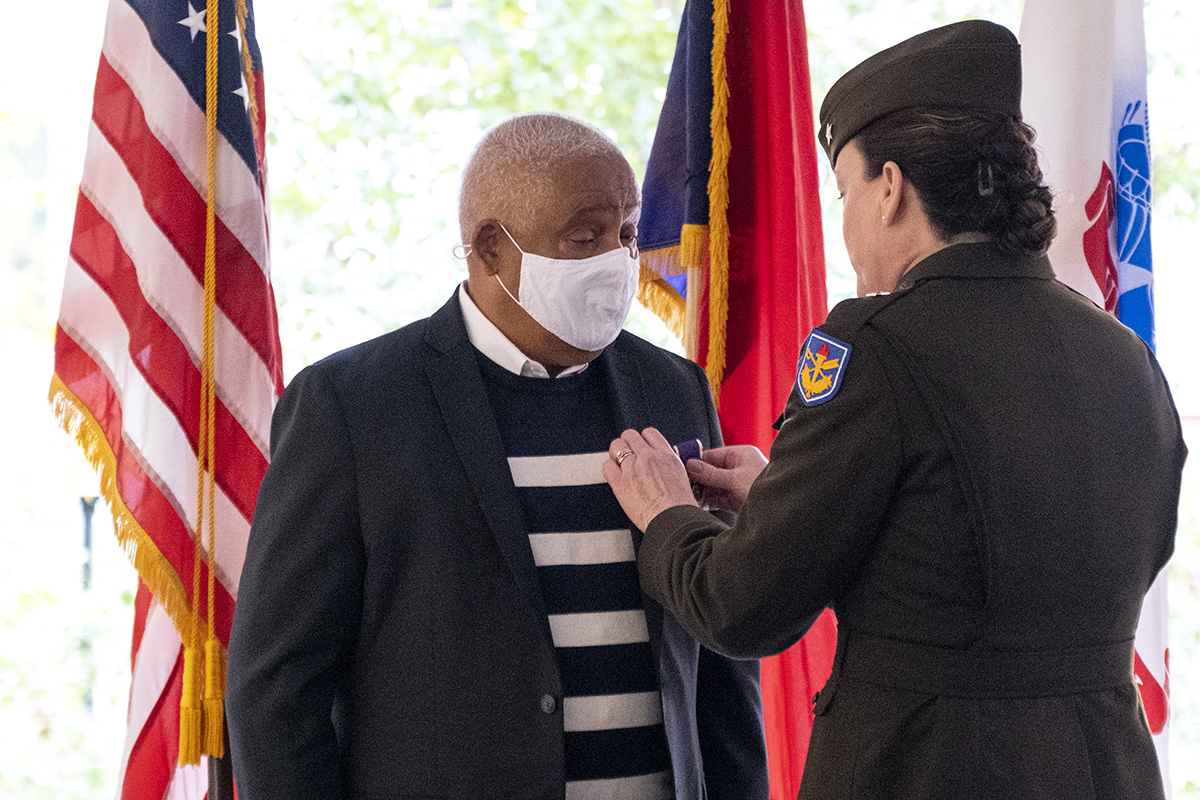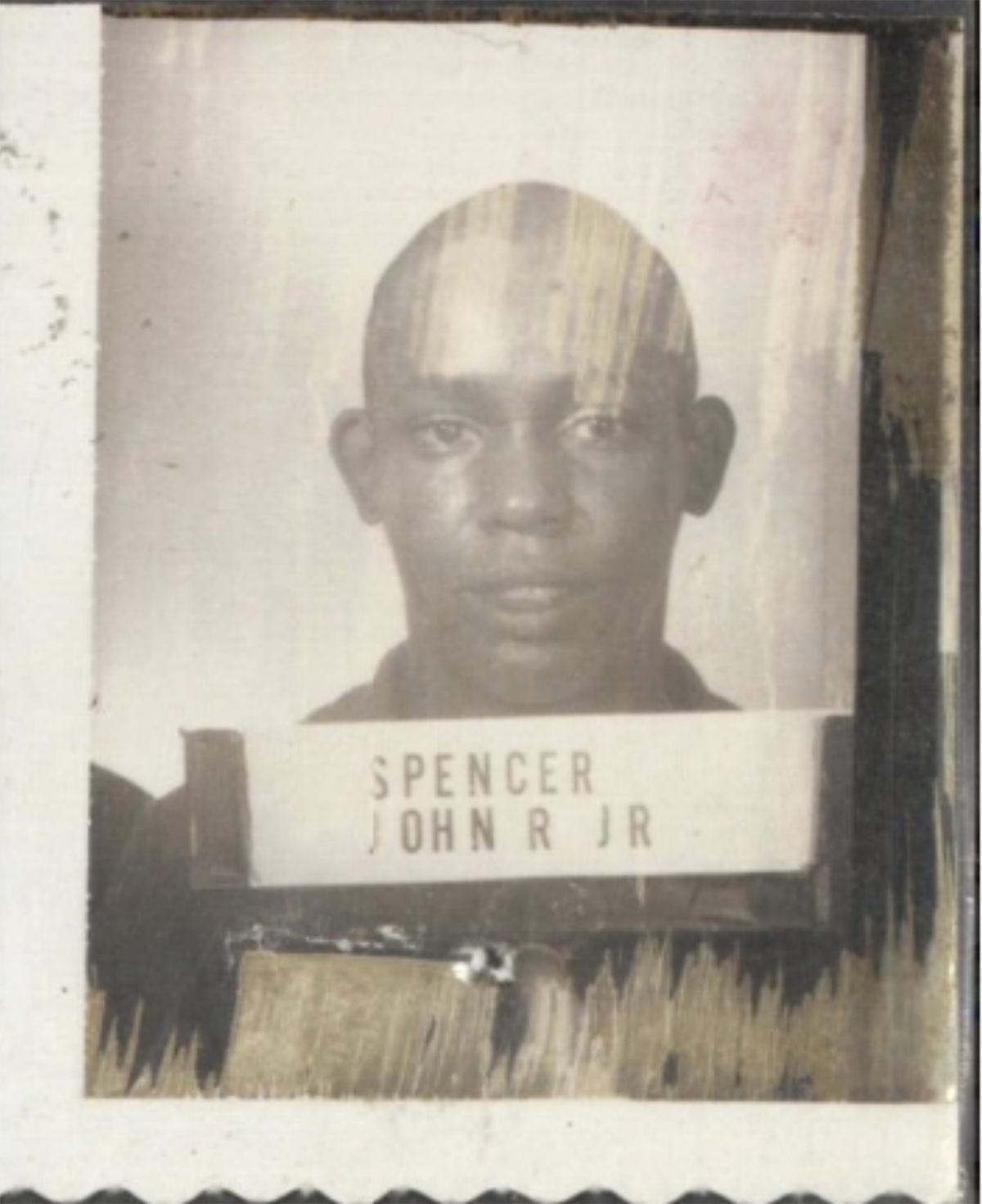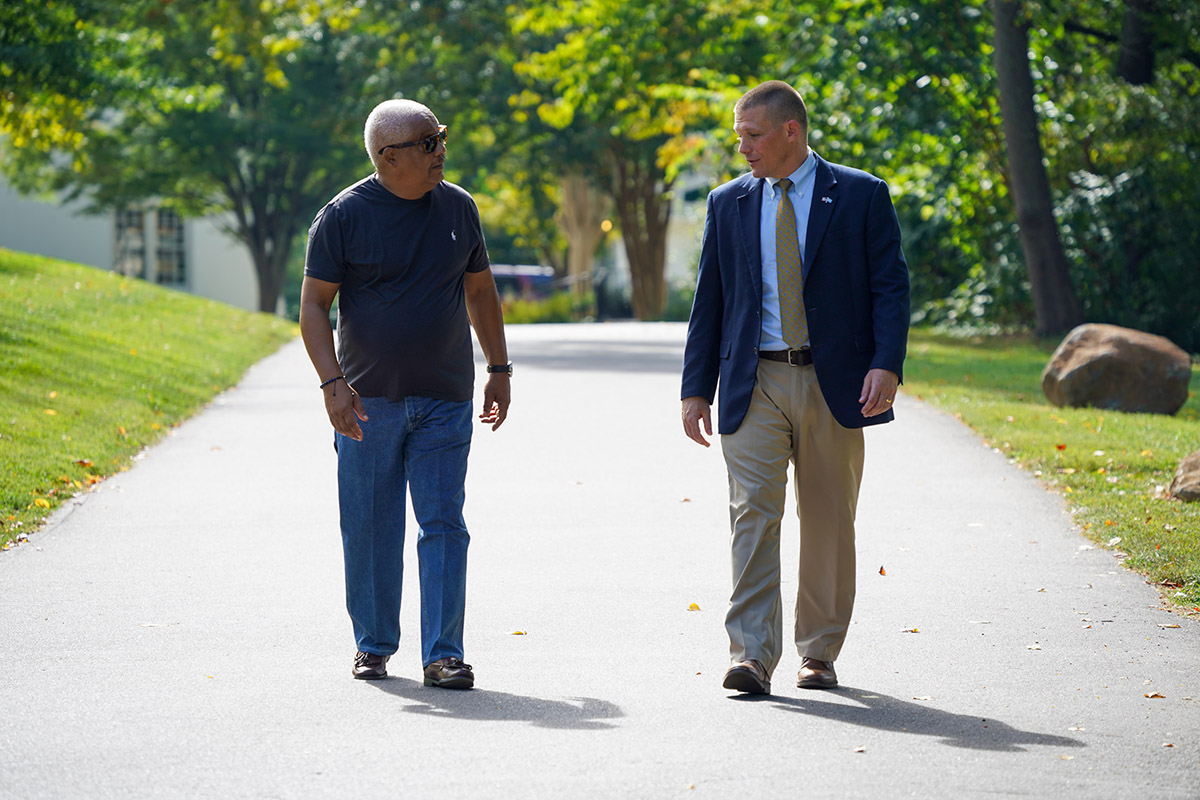Restoring a veteran’s honor
Students at the UNC School of Law’s Military and Veterans Law Clinic help veterans fight for upgrades or corrections in military discharges to make life-saving resources available to the former service members. For one North Carolina veteran, they restored all the honors he was owed — including his Purple Heart.
John Spencer was working the graveyard shift at the Quality Mills textile plant in Mount Airy, North Carolina, when his draft number came up.
After training at Fort Bragg and Fort Knox, the 20-year-old was sent to South Vietnam in 1969, where he served for one year and 16 days as an Army armored reconnaissance specialist in the infantry. During that deployment, he was hit in the neck by shrapnel.
But it wasn’t just the enemy that presented challenges for Spencer abroad. Being a Black man in the Army provided its own struggles, including enduring racism and discrimination from a leader who called him lazy, conniving and much worse, he recalled.
His unit would ultimately unilaterally discharge Spencer with an other than honorable discharge for minor infractions. Spencer was told by this unit that the discharge would be upgraded once he was stateside again.
That review never happened.
“When I landed in Washington, the atmosphere and function changed,” he recalled. “I was stripped of my uniform. My dog tags were taken away from me. I was given civilian clothes and sent to the airport and waited for a standby flight. When I had gotten to Washington, I began to feel like I was some kind of criminal.”
He was sent home to North Carolina, disqualified for veterans benefits. He was eligible for the Purple Heart but never received it. He had earned a coveted combat infantryman badge and a Vietnam War Cross that he was never awarded.
Ashamed, he kept the details of his discharge a secret from his friends and family for nearly 50 years.
Then, three years ago, Spencer met with Tar Heels from the UNC School of Law’s Military and Veterans Law Clinic and told his story. That group of Carolina Law students at the clinic advocated for Spencer and worked to restore his federal veteran status.
Experiential learning at the Law School
Spencer’s case is just one of dozens that the UNC School of Law’s Military and Veterans Law Clinic has taken on since John Brooker ’03 (JD) became director of the program in 2018.
The program provides pro bono legal support for low-income former service members who are fighting for an upgrade or correction to their military discharge status. Veterans with an other than honorable discharge are left without access to benefits and health care, even when health issues stem from their service.
Brooker, a clinical associate professor of law with more than 20 years of active-duty service in the Army, said it wasn’t uncommon for service members to face discrimination and receive other than honorable discharges for minor offenses during the Vietnam War.
“We try to get those former service members veteran status,” he said. “That opens the door to life-saving veteran benefits that many should have had all along. But, as important as that, it restores the honor that they felt was taken from them. They were separated with a type of discharge that literally says they don’t have honor.”
Isabelle Stevens ’21 (JD) started working at the clinic following her first year at Carolina Law. One of her first cases was Spencer’s.
“Lawyers — in public interest especially — really help people who would not get that help otherwise because they couldn’t afford it,” said Stevens, who will soon be commissioned as an officer in the Army’s Judge Advocate General’s Corps. “Having the opportunity to help somebody and help right some of the inequities that have occurred in their life was the highlight of my law school career.”
Along the way, she was also getting real experience on everything from researching the law to representing clients.
“We’re training law students to be better lawyers,” Brooker said. “We’re training law students on how to combine theory with practice and then giving them the opportunity to actually practice under the supervision of trained faculty.”
Real cases, real results
By the time he made his way to Carolina Law’s clinic in his early 70s, Spencer was looking for one thing: the right to a military funeral.
“I wanted to have that flag draped across my casket,” he said.
With that goal, Stevens and three other law students combed through military and health records to create an application more than a thousand pages long that appealed Spencer’s discharge on the grounds of discrimination and that the discharge was not conducted to protocol. Within those records and meetings with Spencer, the students also learned he had been hit in the neck by shrapnel during the war, making him eligible for the Purple Heart.

John Spencer receives his Purple Heart from Brig. Gen. Alison C. Martin ’00 (JD) at the UNC School of Law on Nov. 4, 2021. (Jon Gardiner/UNC-Chapel Hill)
Earlier this year, the clinic team received the good news that Spencer’s discharge had been upgraded and his honors would be restored. After five decades, he was finally granted full federal veteran status with full health care benefits and will receive his Purple Heart, combat infantryman badge and a Vietnam Gallantry Cross.
The clinic celebrated those results this week when Spencer visited the UNC School of Law to have the Purple Heart pinned to his chest by Carolina Law alumna and Army Brig. Gen. Alison C. Martin ’00 (JD).
“We poured our heart and soul into his case,” Stevens said. “I know that him getting these awards is not going to change his life in the way it would have if he got them when he should have, but it represents an inequality has been fixed. Being able to be part of that was the most inspiring part for me.”
The students, Brooker said, are the ones who made it happen. Seeing budding lawyers fighting for a deserving client is what he considers the greatest reward of the job.
“They’ve learned how to use their talents and education to help their fellow North Carolinians,” he said. “And the folks they are helping have their faith in humanity restored because, often for the first time in decades, somebody has listened to their side of the story, believes in them and fought for them.”
After spending 50 years keeping the details of his discharge quiet, Spencer’s daughter is preparing a shadow box for him to display his awards and badges with pride. He will also receive his military funeral when the time comes.
“It’s like a burden was lifted,” Spencer said. “I’ve been carrying it around all my life — the idea that this is negative, that this is bad or that I’m not a complete person. It’s a good feeling not to have that there.”
Learn more about the UNC School of Law’s Military and Veterans Law Clinic






